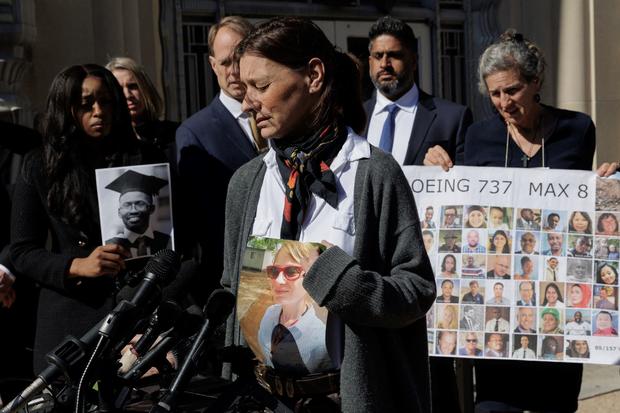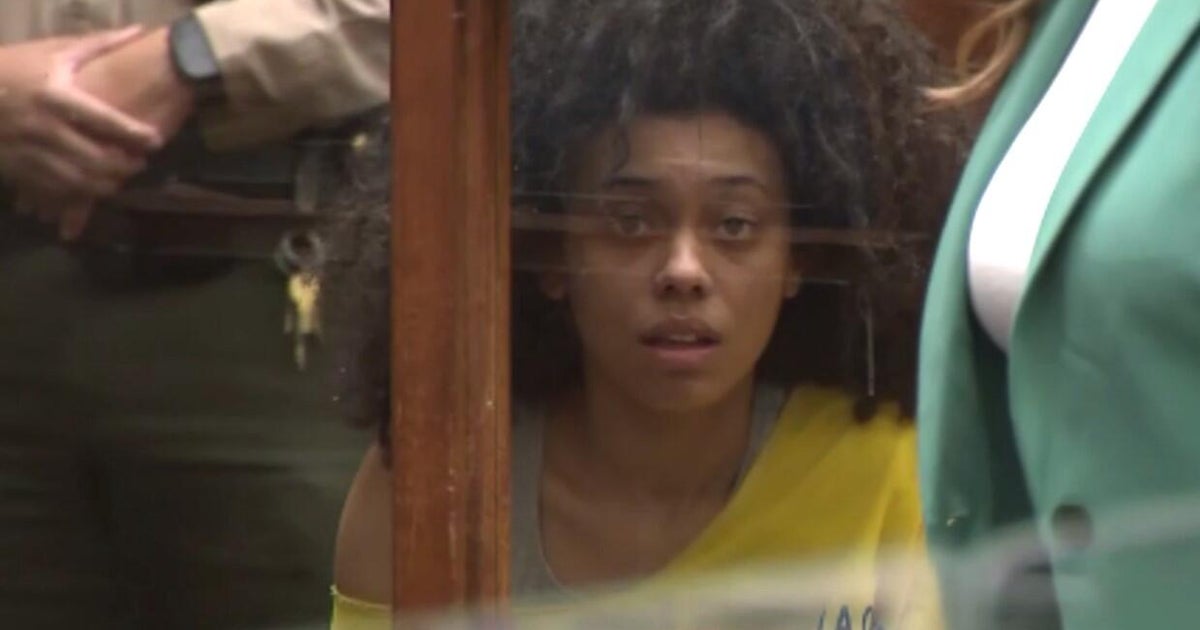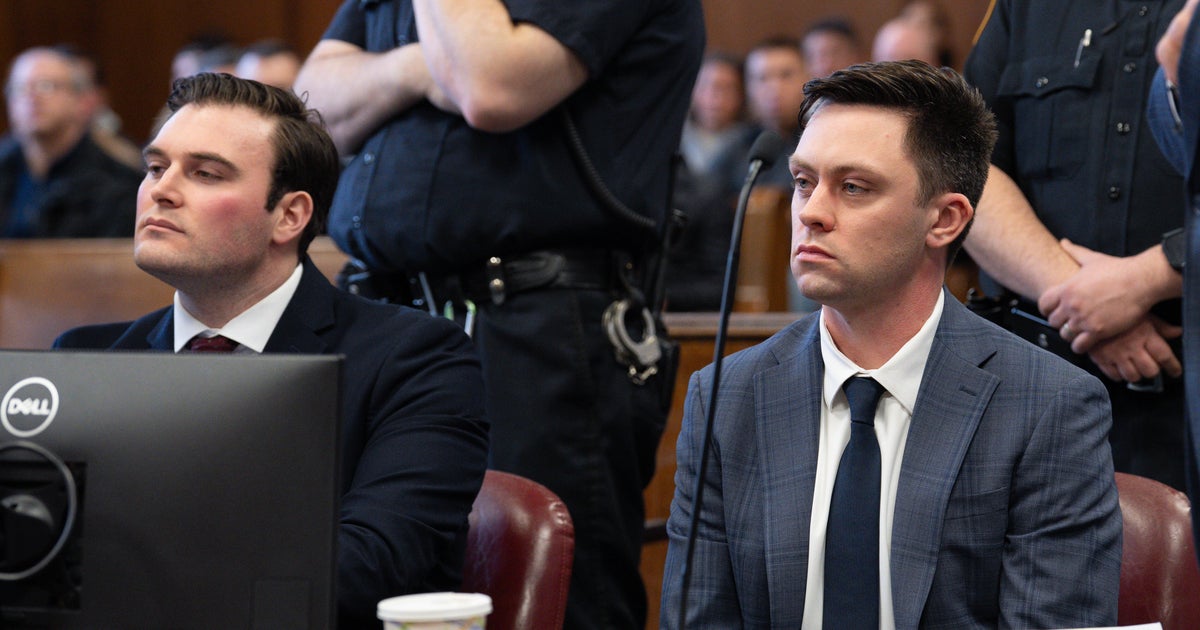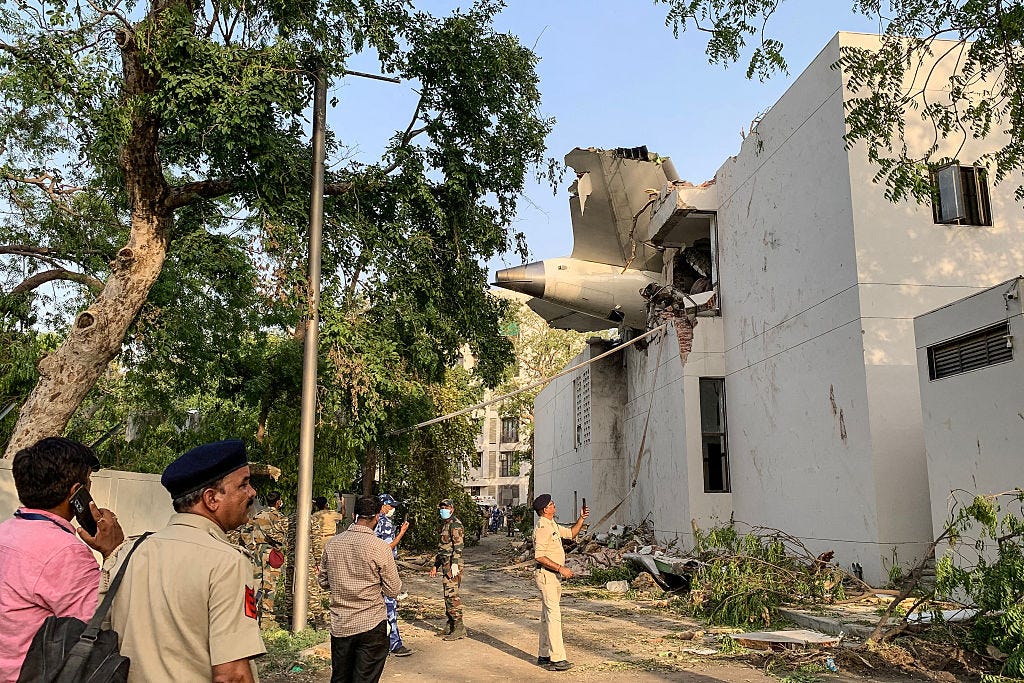Boeing pleads not guilty to fraud in 737 Max jet crashes
Boeing pleaded not guilty Thursday to a charge that it misled regulators who approved its 737 Max, the plane that was involved in two crashes that killed 346 people. Family members of passengers who died gave emotional testimony, calling for criminal prosecution of top Boeing officials.
The families are trying to convince a federal judge to throw out a settlement that the company reached with the federal government to avoid prosecution.
U.S. District Judge Reed O'Connor took the plea from Boeing, which was represented by its chief safety officer and a bevy of lawyers, and warned the company not to break any laws for the next year.
The judge delayed ruling on a request by the families to appoint a special monitor to examine safety issues at the aerospace giant. Boeing and the Justice Department opposed the request.
Investigations into the 2018 and 2019 crashes pointed to a flight-control system that Boeing added to the Max without telling pilots or airlines. Boeing downplayed the significance of the system, then didn't overhaul it until after the second crash.
The Justice Department investigated Boeing and settled the case in January 2021. After secret negotiations, the government agreed not to prosecute Boeing on a charge of defrauding the United States by deceiving regulators who approved the plane. In exchange, the company paid $2.5 billion — a $243.6 million fine, a $500 million fund for victim compensation, and nearly $1.8 billion to airlines whose Max jets were grounded.
Last September, Boeing also paid $200 million to settle charges from the Securities and Exchange Commission over allegations it misled the public and investors.
On Oct. 18, 2018, Lion Air Flight 610 crashed into the ocean off West Java, Indonesia, shortly after takeoff. All 189 people aboard died.
About five months later, on March 10, 2019, Ethiopian Airlines Flight 302 crashed, also just after takeoff, near Addis Ababa, killing all 157 people aboard.
Boeing has faced civil lawsuits, congressional investigations and massive damage to its business since the crashes.
Before each crash, an automated flight-control system called MCAS pushed the nose down based on faulty readings from a single sensor. Boeing blamed two former test pilots for misleading Federal Aviation Administration officials about the system.
One of the test pilots is the only person prosecuted in connection with the Max. A jury in O'Connor's courtroom found him not guilty last year. Relatives of the passengers called him a scapegoat, saying flaws on the Max were caused by top executives led by then-CEO Dennis Muilenburg instilling a culture of putting profit before safety.
Families of the victims told the judge Thursday they are still stunned by the $2.5 billion settlement.
"We want to see real justice, and that has to be prosecutions for manslaughter," said Naoise Connolly Ryan, whose husband, Mick, was killed in the second crash.
Naheed Noormohamed, who lost his father, Ameen, on the same flight, said the Justice Department had failed the families by not considering their pain.
"This is not just a failure of justice, it's a failure of humanity," he testified.
"I'm the only voice left in my family," said Paul Njoroge, a Kenyan-born Canadian whose wife, three small children and mother-in-law all died in the second crash.
Some relatives showed pictures of their loved ones to the Boeing team. They described empty spaces at special family events, and of the grief of going to Ethiopia to collect remains. Many of them fought back tears as they addressed the judge.
The fate of the settlement could rest with Judge O'Connor. He carved a path for the families to challenge the settlement by ruling last October that the Justice Department had violated federal law by not consulting with crime victims before what amounted to a plea deal.
Separately, the families have asked O'Connor to throw out part of the settlement that gave Boeing immunity from prosecution. That would give families more leverage to lobby the Justice Department to reverse its earlier decision and prosecute the company. The judge has not ruled on the immunity question.




